Dec 20, 2023
Credit Cards vs. Debit Cards: The Differences Can Add Up
The subtle, but important, differences, explained.
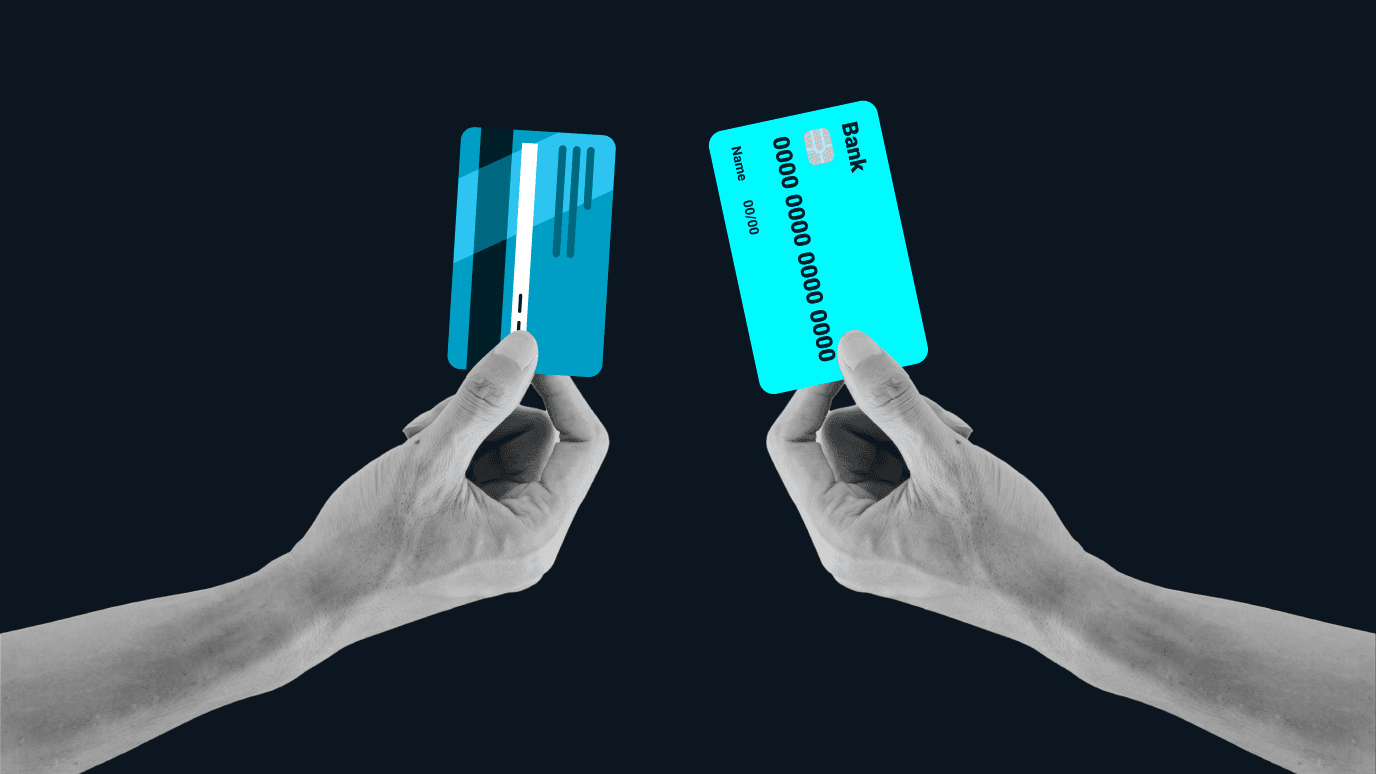
When you plan to make a purchase, it’s important to know whether you’re using debit or credit. While these cards look similar and function much the same at the cash register or when buying online, they work very differently.
Debit cards take money out of your bank account when you swipe, while credit cards add debt to your line of credit when you use them. Understanding the differences between debit cards vs. credit cards will allow you to use the right one for your needs.
Debit Card | Credit Card |
|---|---|
Withdraws money from your checking account | Adds debt to your balance owed |
Allows cash withdrawals at ATMs, sometimes with a fee | May allow cash withdrawals at ATMs, usually with a high fee |
Does not create debt that accrues interest | Adds to debt that accrues interest |
Comes with some fraud protection | Comes with robust fraud protection |
Can lead to overdraft fees | Can come with annual or other fees |
Does not build credit | Can help build credit |
What is a debit card?
While cash is still a viable payment option for most goods, businesses have long been progressing toward digital payment methods. Purchasing trends have also shown an increase in online shopping, even for groceries, making cash and checks obsolete.
What is a debit card? A debit card is a payment card that is used to purchase goods. You can swipe, insert, or tap the card at the payment terminal, and money is deducted from your checking account to cover the cost of the purchase. Advancing technology has allowed iPhones and Androids to carry a digital copy of a debit card in a Wallet app that works the same way. |
|---|
A debit card reduces the need to carry cash or physical checks to purchase. Some retailers no longer accept physical checks as payment, which will likely increase with time.
How a debit card works
A debit card is connected to a bank account the cardholder opens up at a financial institution. You can use a debit card in one of three ways: to make purchases at a point-of-sale (POS) system in a physical store, at an ATM to withdraw cash, or to make purchases online.
The amount of money you can spend using a debit card depends on what you have in your bank account. There is no line of credit you can borrow with a debit card. If funds are unavailable in your account at the time of purchase, the transaction will likely be declined or cause an overdraft to occur.
When a purchase is made in person, you use a personal identification number (PIN) set up at the financial institution when the card is ordered. The transaction is then sent through the online network used by the merchant to remove the funds from your account.
Some debit cards allow you to forgo using the PIN and choose the “credit” option, which typically requires a signature. The transaction is then processed through the global digital payment technology company network, where a hold is placed on the amount, processing within a few days.
The benefits of debit cards
Convenience
Debit cards deduct purchases from your account immediately, so you don’t have to wait days for the money to be subtracted from your available balance. Using a debit card for transactions or to withdraw cash provides benefits like convenience and speed, and some even have rewards.
No annual fees
Debit cards do not require annual fees to stay activated. The bank account that the debit card is connected to may have monthly maintenance fees, but there are ways to avoid those fees with direct deposits or other means.
Avoid overspending
Debit cards can help you avoid overspending since you can only spend what is available in your bank account. If there are not sufficient funds to cover a purchase, the transaction will likely be declined. There are exceptions to this, and some financial institutions allow you to overdraft your account, but overdraft fees apply.
No interest
Since purchases are taken directly from your account, debit cards don’t accumulate a balance to be paid. This means debit cardholders avoid having to pay interest on a balance owed.
Debit card rewards
While they are usually not as generous as the rewards offered by credit cards, some debit cards also come with rewards, When you use your debit card for purchases, some banks might offer you cashback or discounts on specific products or services. While these rewards may be smaller, they still provide a little extra something for your everyday spending.
Cons of debit cards
Spending limit
A debit card restricts you to the money you have in your account. There may be instances where you need to spend more than what you have available. You can budget for those larger purchases, but sometimes, some emergencies require immediate funds.
Overdraft fees
If you don’t have overdraft protection on your account, there may be instances when using your debit card causes an overdraft. When an account is overdrafted, a fee is triggered as a penalty. If you immediately bring your account out of the negative, you can avoid future fees. If not, some financial institutions will charge you an additional fee every day the account is overdrafted.
Limited fraud protection
Any time a debit card is lost or stolen, you must notify your bank immediately. According to the Federal Trade Commission, if you report your lost or stolen card within two days, you may still be held responsible for up to $50 of fraudulent charges. If it takes you more than two business days, you’ll be responsible for up to $500, and anything past 60 days could make you liable for all the fraudulent charges on your account.
Don’t build credit
Since a debit card doesn’t allow you to borrow funds, it doesn’t assist in building credit. While debit cards don’t affect your credit score, other lines of credit, including a credit card, will.
What is a credit card?
Similar to a debit card, a credit card is a small rectangular piece of plastic or metal issued to you by your bank or a financial services company. However, how a credit card functions differs from a debit card.
What is a credit card? A credit card allows you to borrow funds to purchase goods and services with in-person or online merchants. The agreement or condition of using borrowed funds is that the cardholder will pay it back with applicable interest. |
|---|
Credit cardholders may also be granted a separate cash line of credit (LOC). In this case, cardholders can borrow a specified amount of money through cash advances at their financial institution, ATM, or by using credit card convenience checks. Cash advances come with terms that typically involve higher interest rates and no grace period.
How a credit card works
A credit card can be swiped, inserted, and tapped at a payment terminal. You can also use them online with the credit card number, expiration date, and security code. The only time you can use them to obtain physical money is through a cash advance.
Once you make a purchase, it will appear as “pending” in your account activity and take a few days to clear. Once the amount is posted, it will be added to your balance owed and removed from your available credit.
Every month, you’re required to make a payment on your credit card on a specific date. You can pay off your entire balance owed, your current statement cycle balance, the minimum payment, or an amount of your choosing. Paying any amount but the total balance will incur interest, and paying anything below the minimum payment will incur fees.
The benefits of credit cards
Build credit
A credit card can build credit. The type of credit built depends on payments being made on time and the balance owed steadily decreasing. You don’t need to maintain a balance owed to build good credit, so paying the full balance every payment cycle is the best and safest approach.
Rewards
Credit cards generally have incentives or rewards for the cardholder to encourage use. The types of rewards will depend on the card, but they can come in the form of cashback, airfare points, a free night stay at a hotel, and more.
Consumer protections
Many credit cards offer cardholders a zero-liability policy if fraudulent purchases are made on the card. In other words, you won’t be responsible for unauthorized charges. You can also dispute a charge if the product purchased was falsely advertised, unsatisfactory, or absent.
Reservations and travel perks
Certain situations require a credit card, like booking a hotel room. Aside from cash, hotels will only accept credit cards as payment for the room and incidentals, should anything in the room become damaged or go missing. Special travel credit cards have useful perks like concierge services, rental car insurance, no foreign transaction fees, and more.
Cons of credit cards
Overspending
The ease of using a credit card with a large credit limit can lead to cons like overspending. Spending to the credit limit could put you in a cycle of only being able to afford to make the minimum payments and incurring interest charges, which causes your debt to grow. High balances on your credit card can damage your credit score.
Debt
Credit cards allow you access to more funds than your budget may allow, which can lead to debt if overspending occurs. Interest charges can be about as much as the minimum payment if your balance is high, making it difficult to pay down your debt.
Interest rates
Credit cards have variable interest rates, which depend on the federal funds rate. Rising interest rates can cause credit card balances to go up, making it harder to budget and pay down debt. If a balance is left after a payment is made, finance charges can increase.
Fees
Many credit cards have annual fees, fees for adding an authorized user, fees for cash advances, foreign transaction fees, or fees for making a late payment. It’s important to review the fees and perks of a credit card, and how they may or may not impact you, so you can decide if the card is right for you.
Debit vs credit: key takeaways
Debit Card | Credit Card |
|---|---|
Withdraws money from your checking account | Adds debt to your balance owed |
Allows cash withdrawals at ATMs, sometimes with a fee | May allow cash withdrawals at ATMs, usually with a high fee |
Does not create debt that accrues interest | Adds to debt that accrues interest |
Comes with some fraud protection | Comes with robust fraud protection |
Can lead to overdraft fees | Can come with annual or other fees |
Does not build credit | Can help build credit |
Having the best of both worlds
You don’t have to choose one over the other when it comes to having a credit card or debit card. Each has its benefits and can be used for separate occasions. For example, the fraud protection on a credit card is more robust, making it the safer option for online purchases. Debit cards are more suited for everyday purchases, so you can better control your spending. Many people have both to manage their funds, establish credit, and take advantage of rewards.

Investing made easy.
Start today with any dollar amount.
Related articles
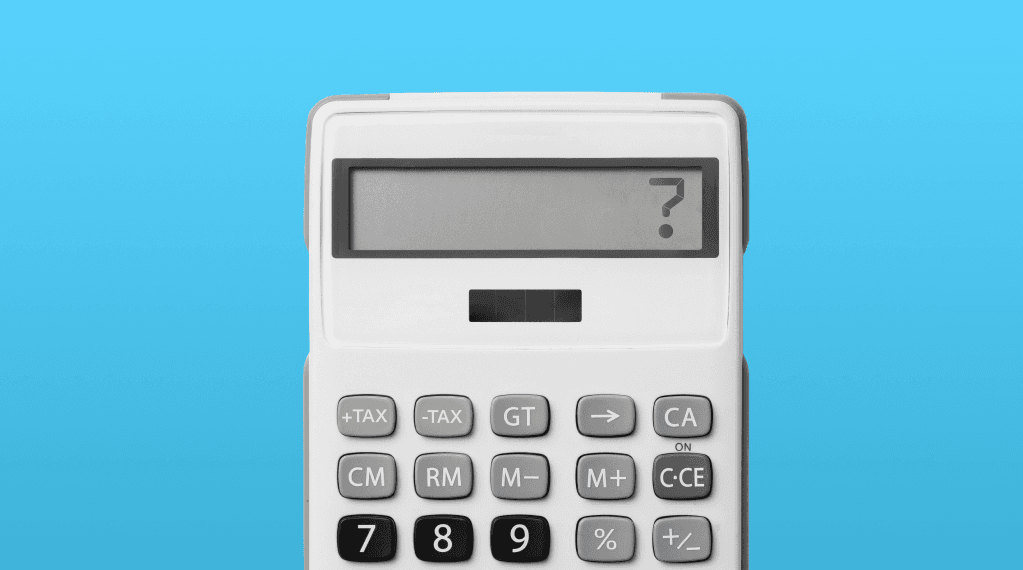
borrowing
Oct 14, 2024
How To Use Personal Loans

borrowing
Oct 07, 2024
Cash Advances vs. Personal Loans: Which is Better?

borrowing
Oct 07, 2024
How To Use Cash Advances
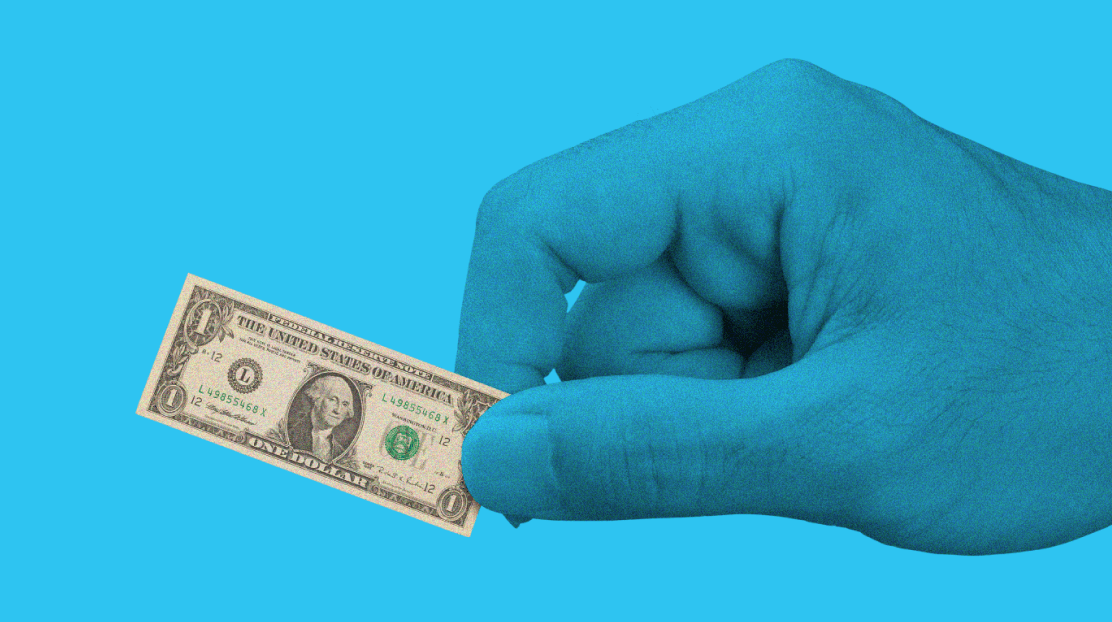
borrowing
Oct 07, 2024
How To Pay Off a Cash Advance Quickly
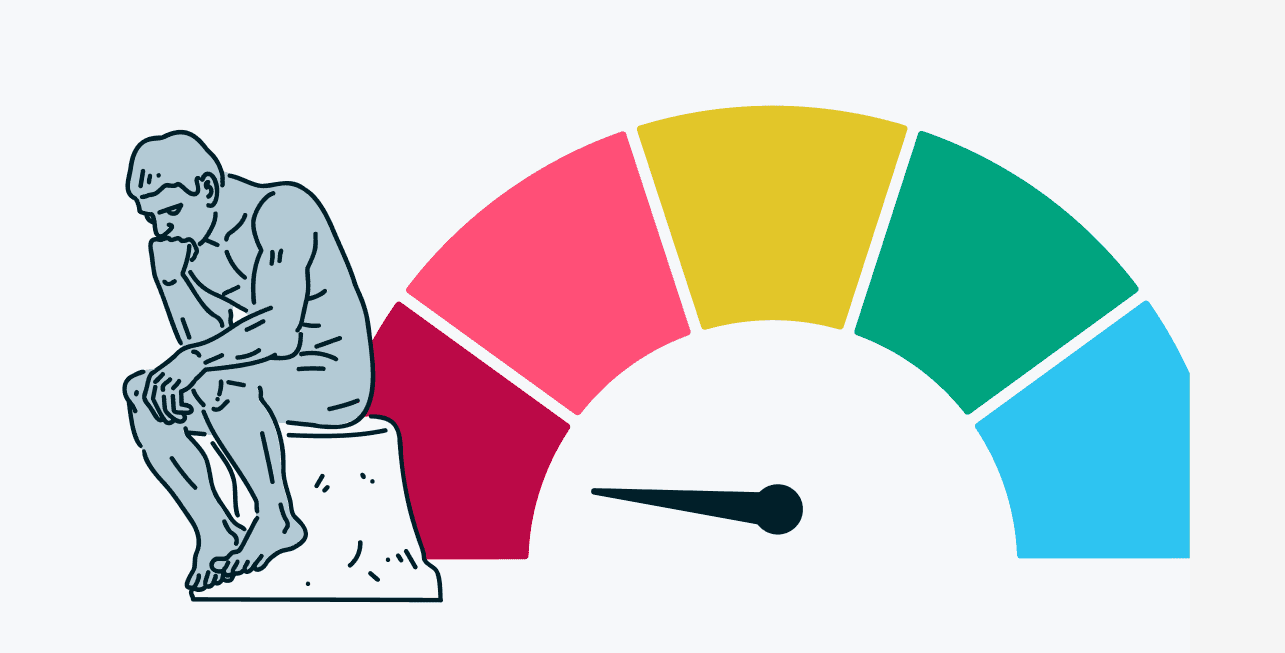
borrowing
Oct 07, 2024
What To Know Before Taking a Cash Advance
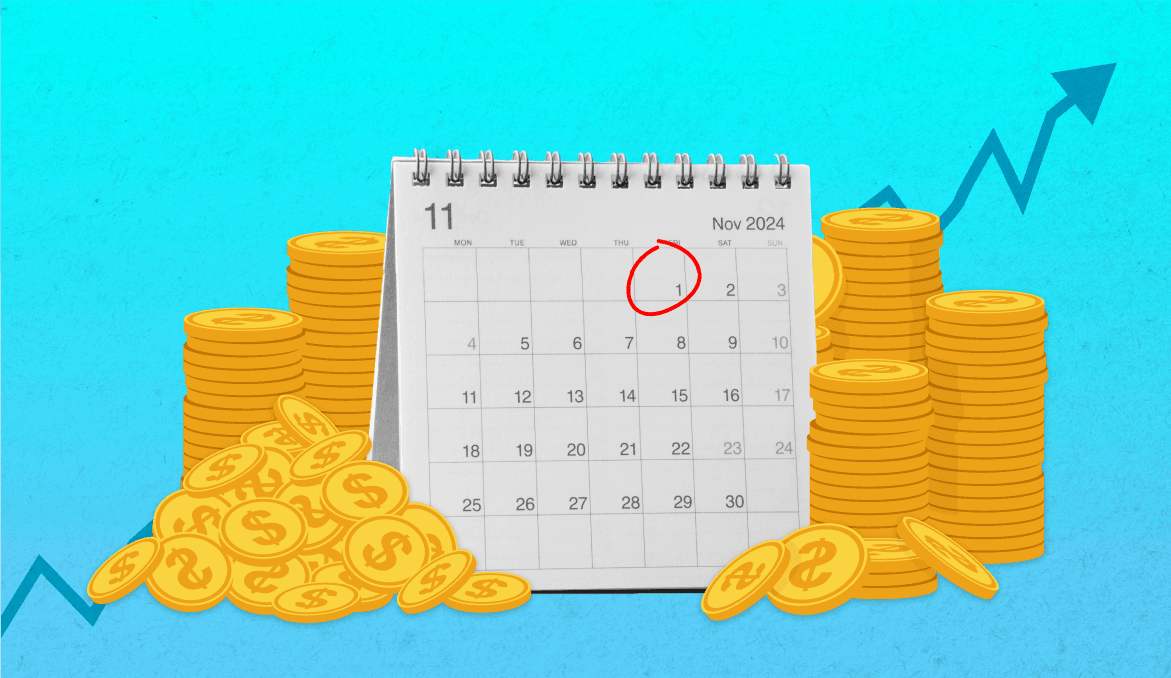
borrowing
Oct 07, 2024
How to Avoid Cash Advance Fees
By using this website you agree to our Terms of Use and Privacy Policy. To begin investing on Stash, you must be approved from an account verification perspective and open a brokerage account.
